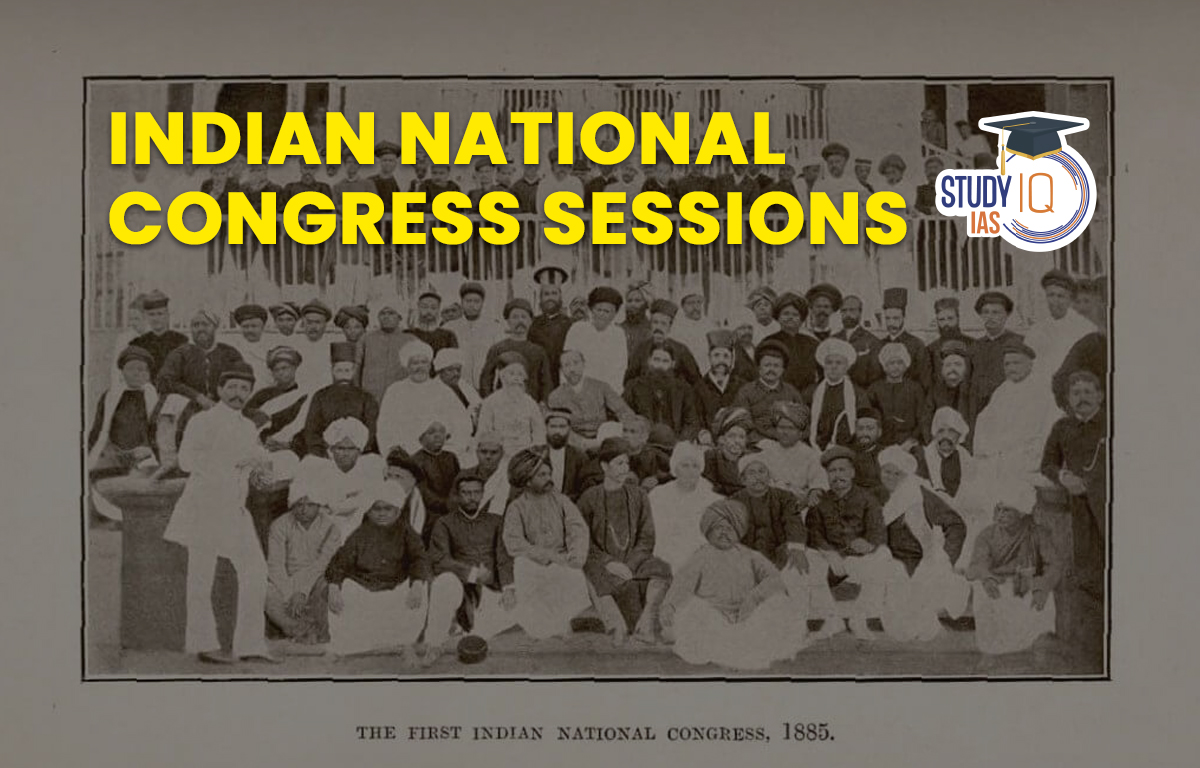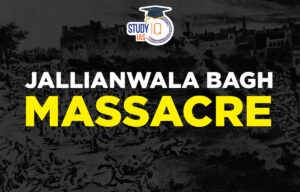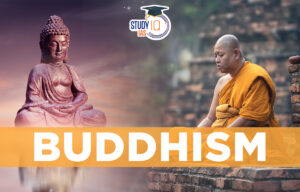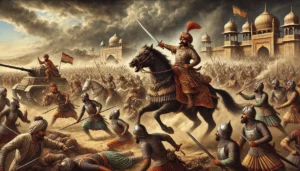Table of Contents
Context: The Indian National Congress (INC) is holding a special event in Belagavi (formerly Belgaum), Karnataka to mark 100 years of Belagavi Session 1924.
About 1924 Belgaum Congress Session
- It was the 39th Session of the INC and was the only session presided over by Mahatma Gandhi.
- The session was attended by several senior Congress leaders including Jawaharlal Nehru, Sardar Vallabhbhai Patel, Sarojini Naidu and Khilafat movement leaders Muhammad Ali and Shaukat Ali and various others.
Significance
- During this session, Gandhi presented his ideas on non-violence &communal harmony.
- Mahatma Gandhi also discussed his dream of ‘Swaraj’ and ‘Sarvodaya’.
- Held separate conferences against untouchability.
- Strong resolutions were passed to stress upon Hindu-Muslim unity, paid social service and making khadi spinning mandatory.
The Indian National Congress Sessions is an important part of Indian Polity which is an important subject in UPSC Syllabus. Students can also go for UPSC Mock Test to get more accuracy in their preparations.
Indian National Congress Sessions
The Indian National Congress (INC), which was established in 1885, went on to become one of the most significant political organizations in pre-independence India. The INC’s inaugural meeting took place in 1885. Starting out as a place that only employed the cream of India’s educated population.
With great leaders like Lajpat Rai, Tilak, Gandhi, Nehru, Bose, and others, it developed into a party of citizens in the ensuing years. Understanding the times and the president of the Indian National Congress sessions is crucial. Additionally, decisions and demands made during these meetings are crucial for the Civil Service Exams.
List of Indian National Congress Sessions From 1885-1950
The need for an all-India organisation has been recognised by educated Indians since 1880, but the Ilbert Bill controversy heightened this desire. With the establishment of the Indian National Congress, one of the most important political organisations of the 20th century was formed (INC). Since then, the INC has played a significant part in the political landscape of the nation. All of the Indian National Congress’s Sessions from 1885 to 1947 are listed below.
| Year | Location | President | Importance |
| 1885 | Bombay | W C Bonnerjee | 1st session was attended by 72 delegates |
| 1886 | Calcutta | Dadabhai Naoroji | National Congress and National Conference |
| 1887 | Madras | Syed Badruddin Tyabji | An appeal was made to Muslims to join hands with other national leaders |
| 1888 | Allahabad | George Yule | First English president |
| 1889 | Bombay | Sir William Wedderburn | – |
| 1890 | Calcutta | Feroz Shah Mehta | – |
| 1891 | Nagpur | P. Ananda Charlu | – |
| 1892 | Allahabad | W C Bonnerjee | – |
| 1893 | Lahore | Dadabhai Naoroji | – |
| 1894 | Madras | Alfred Webb | – |
| 1895 | Poona | Surendranath Banerjee | – |
| 1896 | Calcutta | Rahimtullah M. Sayani | The national song ‘Vande Mataram’ sung for the first time in this session. |
| 1897 | Amravati | C. Sankaran Nair | – |
| 1898 | Madras | Ananda Mohan Bose | – |
| 1899 | Lucknow | Romesh Chandra Dutt | – |
| 1900 | Lahore | N G Chandavarkar | – |
| 1901 | Calcutta | Dinshaw E. Wacha | – |
| 1902 | Ahmedabad | Surendranath Banerjee | – |
| 1903 | Madras | Lal Mohan Ghosh | – |
| 1904 | Bombay | Sir Henry Cotton | – |
| 1905 | Benares | Gopal Krishna Gokhale | Expressed anger at Bengal’s partition. |
| 1906 | Calcutta | Dadabhai Naoroji | The word ‘Swaraj’ was mentioned for the first time |
| 1907 | Surat | Rash Behari Ghosh | The party splits into extremists and moderates |
| 1908 | Madras | Rash Behari Ghosh | The previous session continued |
| 1909 | Lahore | Madan Mohan Malaviya | Indian Councils Act, 1909/Morley-Minto Reforms |
| 1910 | Allahabad | Sir William Wedderburn | – |
| 1911 | Calcutta | Bishan Narayan Dhar | ‘Jana Gana Mana’ sung for the first time in this session |
| 1912 | Bankipore (Patna) | Raghunath Narasinha Mudholkar | – |
| 1913 | Karachi | Syed Mohammed | – |
| 1914 | Madras | Bhupendra Nath Basu | – |
| 1915 | Bombay | Satyendra Prasanna Sinha | – |
| 1916 | Lucknow | Ambica Charan Mazumdar | Lucknow Pact – joint session with the Muslim League |
| 1917 | Calcutta | Annie Besant (1847 – 1933) | The first woman president of the INC was announced in this session |
| 1918 | Bombay And Delhi | Syed Hasan Imam (Bombay) And Madan Mohan Malaviya (Delhi) | Two sessions were held. First in Bombay in August/September Second in Delhi in December |
| 1919 | Amritsar | Motilal Nehru | Jallianwala Bagh massacre was strongly condemned in this session |
| 1920 | Nagpur | C Vijayaraghavachariar | – |
| 1921 | Ahmedabad | Hakim Ajmal Khan (acting President For C R Das) | – |
| 1922 | Gaya | C R Das | – |
| 1923 | Kakinada | Maulana Mohammad Ali, | – |
| 1924 | Belgaum | M K Gandhi | Only session presided over by Mahatma Gandhi |
| 1925 | Kanpur | Sarojini Naidu (1879 – 1949) | A first Indian woman president |
| 1926 | Guwahati | S Srinivasa Iyengar | – |
| 1927 | Madras | M A Ansari | – |
| 1928 | Calcutta | Motilal Nehru | All India Youth Congress formed |
| 1929 | Lahore | Jawaharlal Nehru | Resolution for “Poorna Swaraj.” Movement for full independence to be started through civil disobedience; 26 January to be observed as “Independence Day.” |
| 1930 | No Session | – | – |
| 1931 | Karachi | Sardar Vallabhbhai Patel | resolution on national economic development and basic rights. Irwin-Gandhi Pact is approved. Gandhi is proposed as the INC representative at the second round table meeting. |
| 1932 | Delhi | Amrit Ranchhorddas Seth | – |
| 1933 | Calcutta | Malaviya Was Elected But Mrs Nellie Sengupta Presided | – |
| 1934 | Bombay | Rajendra Prasad | – |
| 1936 | Faizpur | Jawaharlal Nehru | The first rural session/first session to be held in a village |
| 1937 | Lucknow | Jawaharlal Nehru | – |
| 1938 | Haripura | Subhas Chandra Bose | National planning committee set up under Nehru |
| 1939 | Tripuri | Subhas Chandra Bose | Despite being elected, Bose was forced to retire because Gandhi backed Pattabhi Sitaramayya. Rajendra Prasad was substituted for |
| 1940 | Ramgarh | Abul Kalam Azad | – |
| 1941-45 | – | – | No session because of arrest |
| 1946 | Meerut | Acharya Kripalani | Last session before the independence |
| 1948 | Jaipur | Pattabhi Sitaramayya | The first session after the independence |
| 1950 | Nashik | Purushottam Das Tandon | Resigned in 1951; Nehru became President |
Indian National Congress Sessions History
The INC’s inaugural meeting was scheduled for Poona. The location was later changed to Bombay (current-day Mumbai), due to an outbreak of the epidemic in Poona. The lesson was held at the Gokuldas Tejpal Sanskrit Pathshala in Bombay. A few significant requests from the Indian party were made known to the British after the first meeting. Certain of them are:-
- To appoint a committee to investigate how the Indian Administration is performing. In addition, the Indian Commission, which had its headquarters in London, ought to be disbanded.
- Those who were regarded as moderates questioned the Secretary of State’s power to run India. They clamoured for the establishment of a legislative assembly for the NWFP, Sindh, and Awadh.
- The assembly wanted to increase the number of Indian members so that it could better serve the needs of the Indian people. They desired to give Indians the authority to debate the budget and the freedom to criticise the governance.
- The request to concurrently conduct the civil services examination in India and England and the modification of military expenditure.
Important Congress Sessions and their Presidents
- 1885: C. Banerjee – Formation of Indian National Congress.
- 1888: George Yule – First English President.
- 1905: Gopal Krishan Gokhale – Formal proclamation of the Swadeshi movement
- 1906: Dadabhai Naoroji – Adopted four resolutions on: Swaraj (Self Government), Boycott Movement, Swadeshi & National Education
- 1907: Rash Bihari Ghosh – Split in Congress- Moderates & Extremist.
- 1916: C. Majumdar – Unity between two factions- Moderates and Extremists of Congress & Lucknow Pact signed between Congress and Muslim League.
- 1917: Annie Besant – First Woman President of Congress
- 1925: Sarojini Naidu – First Indian Woman President
- 1929: Jawahar Lal Nehru – Passed the resolution on ‘Poorna Swaraj.’
- 1931: Vallabhbhai Patel – Resolutions on Fundamental Rights and National Economic Programme.
Indian National Congress Sessions UPSC
Additionally, A.O. Hume had a significant role in bringing together Indians from diverse places. The Indian National Congress was founded in an effort to advance the process of nation-building. It was planned to rotate the Congress session across the nation in order to reach all regions. The President’s region differed from the one where the Congress was convening. The Congress aided in the liberation of India from British rule and greatly influenced subsequent anti-colonial nationalist organisations around the British Empire. Due to its lengthy history, the Congress is referred to as the “great old party”. Students can read all the details related to UPSC by visiting the official website of StudyIQ UPSC Online Coaching.
| Related Articles | |
| Freedom Fighters of India | Quit India Movement |
| Civil Disobedience Movement | East India Company |


 Jallianwala Bagh Massacre, Date, History...
Jallianwala Bagh Massacre, Date, History...
 Buddhism History, Origin, Sect, Councils...
Buddhism History, Origin, Sect, Councils...
 Rana Sanga: The Fearless Rajput King and...
Rana Sanga: The Fearless Rajput King and...





















